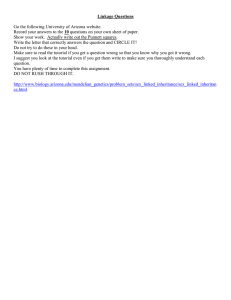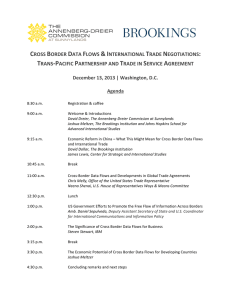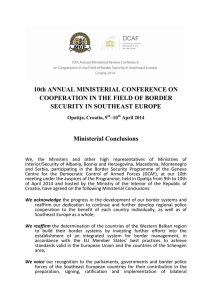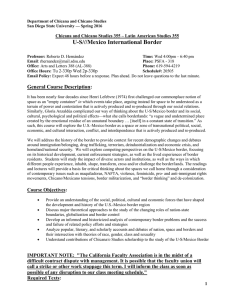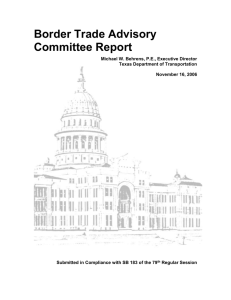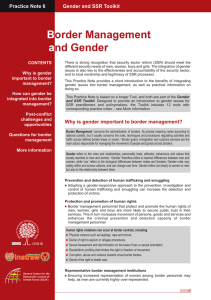Navigating Institutional Challenges to Cross-border, Water-related Research Robert G. Varady
advertisement
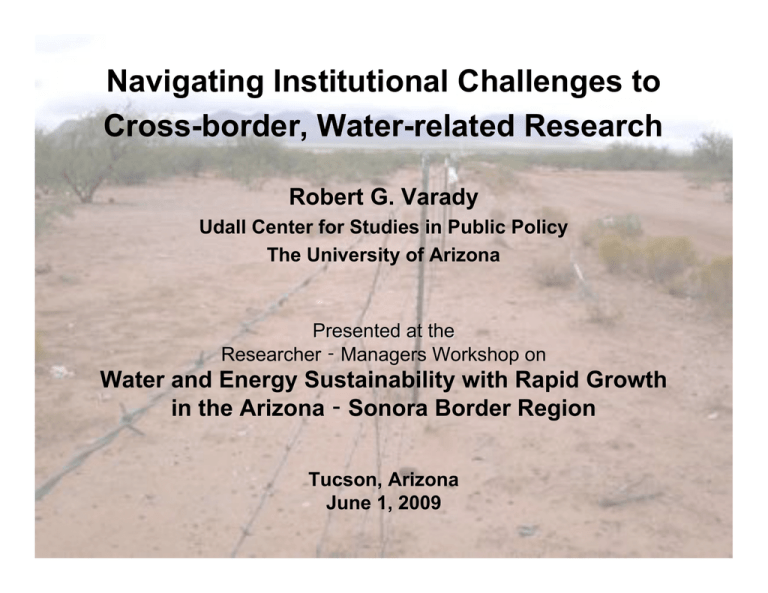
Navigating Institutional Challenges to Cross-border, Water-related Research Robert G. Varady Udall Center for Studies in Public Policy The University of Arizona Presented at the Researcher!Managers Workshop on Water and Energy Sustainability with Rapid Growth in the Arizona!Sonora Border Region Tucson, Arizona June 1, 2009 Crossing the U.S.-Mexico Border: What’s Similar? • Climate, esp. extremes • Landscape • Environment, water availability, habitat, wildlife • Traditional economic mainstays (mining, farming, ranching) Crossing the Border: What’s Different? • Culture, language, demographic trends • Economy, infrastructure • Energy base — Petroleum-dependent & hydrocarbon-based power generation in Mexico — Coal, hydro, nuclear, nonconventional in U.S. • Political systems and legal traditions • Education systems & research establishments •Governmental organization, autonomy of local/regional governments, indigenous societies • Relative vigor of civil society • Vulnerability and ability to cope with environmental stress Institutional Challenges • Insufficient understanding of conditions & institutions • Difficulty of obtaining compatible information • Incompatibility between hydrological & political world views • Poor match between research priorities & decisionmaking • Difficulty in overcoming bureaucratic inertia • Weak partnerships with mutually-interested researchers • Barriers to sharing resources and credit • Poor binational relations suspicions of motives, inability to forge close working relations with agencies, communities, colleagues What Matters Most for Research on Transboundary Governance? • Good relations between neighboring countries • Access to appropriate government agencies • Comparable & compatible agency priorities • Easy access to research sites, information & informants • Availability of data in comparable units, scales, accuracy • Partnerships with researchers & stakeholders • Availability of funds & other resources • Ability to communicate effectively • TRUST



